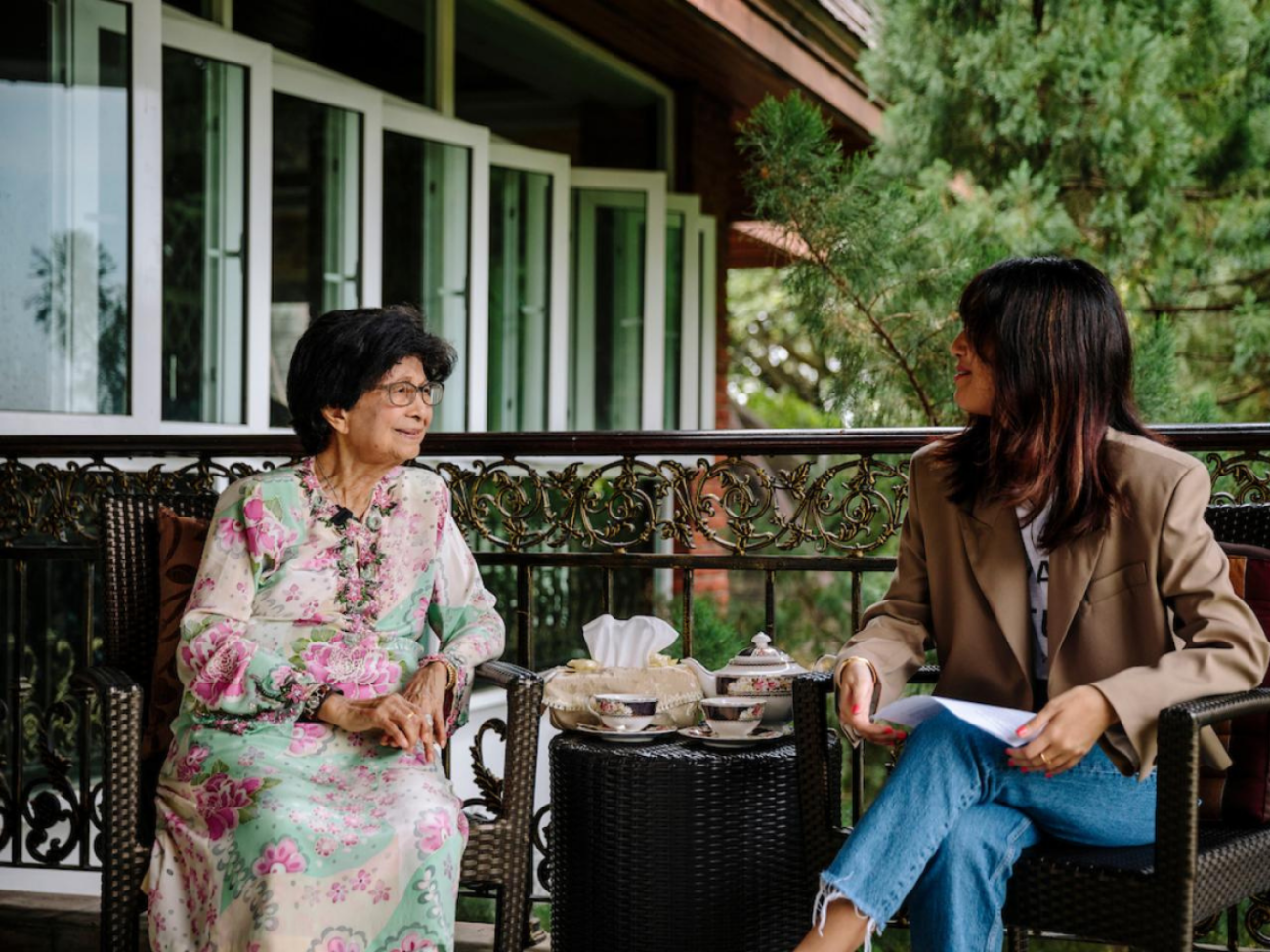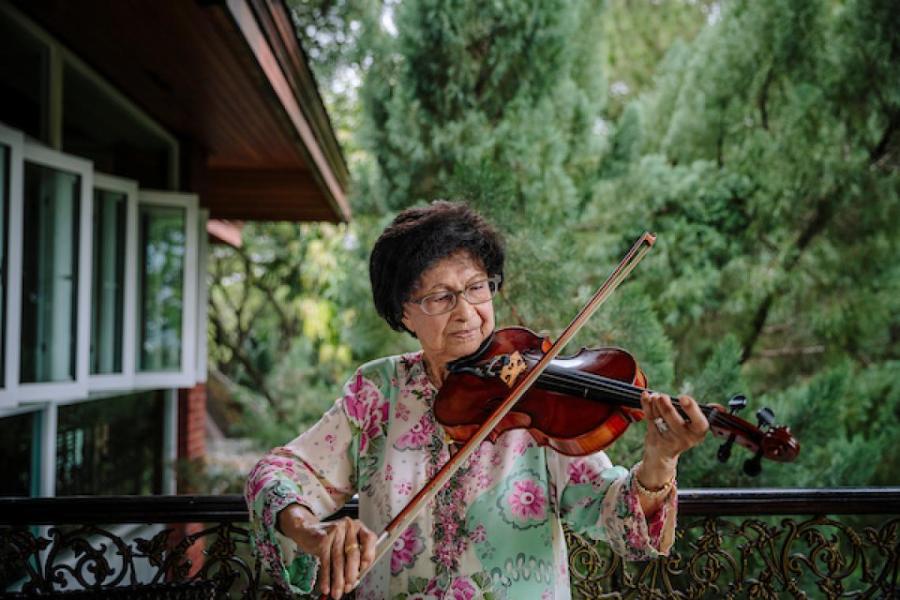Wisdom from a Leading Lady in Malaysia

UNICEF75 special interview with Tun Dr. Siti Hasmah binti Haji Mohamad Ali
The priceless knowledge of those who have lived through previous global health crises can be utilised in the fight against present-day pandemics. As part of UNICEF’s Wisdom Project, commemorating the 75th anniversary of our organisation’s creation, we asked young people to interview elders and share their invaluable experience.
Few have greater experience in this field than Tun Dr. Siti Hasmah binti Haji Mohamad Ali.
The 95-year-old wife of the 4th & 7th Prime Minister of Malaysia, Tun Dr Mahathir Mohamad, was one of the first ever female Malay doctors in what was then known as Malaya; its first female Medical Officer in the Maternal and Child Health Department; and its first female State Maternal and Child Health Officer. She continues to be a tireless campaigner for rural and women’s health, family planning.
Her profound experience can teach us much about the past and future of public health in Malaysia and, in a fascinating interview with her granddaughter Serena Melia Mukhriz(in which she also discusses her, sometimes tragic but often uplifting, experiences treating some of the world’s worst children’s diseases) she did just that.
Referring to her time serving in Kedah, northwest Malaysia, Siti Hasmah sheds light on the severe disadvantages faced by the country’s rural communities and the lessons she learned from the people she treated.
“I was accepted despite being a woman and I learned a lot from them. It was only when I was transferred to the rural health unit, that I realised why rural Malays did not want to come to hospital and why, when they did come, they came late. There was no transportation, no money to hire a taxi. It was so sad.”
“Then you really sit down and say to them, we understand you and we are going to help you. But first and foremost we had to change the mental attitude of rural Malays so they would accept hospital services as they were scared. The mindset was if you go to hospital you will die.”
Around the time of independence education of rural Malays paid huge public health dividends when a landmark immunisation programme slashed horrendously high infant mortality rates.
“The infant mortality rate was 75 per 1000 births under the British. Tuberculosis was the most rampant killer. Children were first given the BCG vaccine after they were born and then, after eight months, an immunisation schedule was set which included the polio vaccine.”
By the time the programme had been fully implemented, independent Malaysia’s mortality rate had dropped to seven per 1000 births. But Siti Hasmah also saw much of the tragedy and torment suffered by unvaccinated children.
“Children without the BCG vaccine had a worse type of tuberculosis which went to the brain alongside meningitis affecting the spine. We had to inject children under 10 in the spinal column. Every morning after dealing with the diptheria cases we had to inject these children in the spine. It was terrible.”
“I was one of the last people to see an iron lung. It was put outside on the veranda with a young boy with his head out and his body in with a respirator helping him breathe. If it stops he will die.”

But those early days also saw the successful treatment of children suffering from these deadly diseases, which Siti Hasmah movingly describes.
“In Kuala Lumpur hospital diptheria cases came during the night - a mother crying while carrying her child who was already blue in the face because the diptherial membrane had closed the trachea. When I fixed the trachea the child, coughing and coughing, would gradually turn pink and start to breathe quietly.”
“The best thing was not only seeing the child’s face go from blue to pink but seeing the mother’s face. This was something I will never forget. She was crying in happiness because she thought her child would die.”
She also remembers the role that UNICEF played in training midwives who, particularly in rural areas, had poor, unsterilised equipment and were reluctant to ask for help in the event of emergencies.
“We brought women to a training school in Jitra where we helped them practice clean midwifery. After successful completion of the course they were given a sterilised UNICEF birth kit with scissors, cotton and thread which they could come back to replenish every month.
“We built a midwifery infrastructure in rural areas with clinics to retrain midwives. The mother could call an assistant midwife who would then call the government midwife to handle the case.”
“I began acting as a midwife while at university when 23 or 24. I loved delivering babies,” she added.
In response to Serena asking what words of wisdom she would like to impart, she directly addressed the current pandemic. Wishing her granddaughter and her generation much happier times, she expressed concern at the amount of anti-vaccination information and the apathy of some professionals when faced with those who refuse to be vaccinated.
In a remarkable medical career which has seen her play a major role in Malaysia’s public health revolution, Dr Siti Hasmah has worked with UNICEF as long as anyone else in the world. She ended the interview by reflecting on her long association with us and our role in helping Malaysia’s and the world’s children.
“I would like to offer my congratulations to UNICEF on the occasion of its 75th anniversary in December. I am very appreciative that the organisation still invites me to events and remembers me even at my age! I am very grateful for the work they have done and I wish them all the best.”


